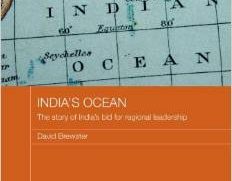The Growing Power of Japan

Hugh Cortazzi’s book has received glowing reviews including from Sir David Warren for the Japan Society and Arthur Stockwin for the Japan Forum. The book concentrates on diplomatic dispatches from 1967-72. Dispatches may have lost their unique cachet in later years. One reason for this is sensitivity, lest critical comments on their host nation are mischievously leaked to the media causing embarrassment to both parties. Self-censorship from Whitehall often means that diplomats cannot always say what they mean, nor mean what they say, for in the digital world data struggles to escape into the public consciousness.
For any diplomat, Japan is a prestigious posting for its power as an industrial economy. This work relates to the diplomatic dispatches from British Ambassador Sir John Pilcher ably assisted by input from his staff. Some of Sir John’s dispatches are wilfully indulgent, occasionally self-appreciating, but they are no less significant. Author Sir Hugh Cortazzi worked under Ambassador Pilcher and was able to correct the record on occasion seen from the benefit of hindsight and reflection. The book is worth reading beyond its obvious appeal to Japanese specialists. It carries a sense of current history as it vicariously relays life in an embassy and living and working in a markedly different environment, which at once is as exotic as baffling.
Cortazzi is a distinguished former diplomat who served much of his professional career in Japan. As a linguist, he has used his retirement to good effect in continuing to be immersed in all things Japanese. Indeed, that formative interest emerged from his wartime service, when he studied Japanese in London before being posted to the Far East as a young RAF officer, interpreting and translating in support of intelligence duties in the campaigns. He has a suite of books behind him and he has done much to discern and understand the very nature of Japanese society. That focus is on social, political, cultural and economic dynamics. As a political officer, he soon gained an informed appreciation of Japan’s history, philosophy, religion and its peculiar political psychology, and what it means to foreigners as much as themselves.
Japan was totally defeated in World War II and that reality seared its national psyche. Yet 1945 was also a point of arrival as much as departure. It is not glib to suggest that Japan defeated itself through its over-determined geopolitical ambitions in Asia. Militarism had to be deracinated and the Japanese needed to be re-socialised. An adaptive and innovative people, they found democracy to their liking, as imposed by a victorious yet benevolent conqueror. Being vanquished was a psychosis they had to endure and move through.
Any review of this book cannot do full justice to the many themes it traverses. These include Japan’s hierarchy, social contract, social differentiation, group think, contextual morality, ethical constructs (at home and abroad), aggressive salesmanship in business, the spiritual role of the royal family, the contested status of Okinawa, uneasy relations with other Asian nations, the role of women and marriage, restive unions and left wing politics, relations with the US, trade (exports and imports) and importantly, the role of the armed forces as Japan increasingly seeks to play a global role.
Cortazzi has made another valuable contribution to Japan country studies and, indeed, it is indispensable for any generalist who wants to master the guild of diplomacy. Diplomats are in a privileged position to represent their country and it is contingent on them to understand what it is to live and work in a foreign country that is very dissimilar to their own. Diplomacy no longer has a monopoly in the world as increasingly others attempt to occupy that crowded space. In a global environment, anyone working in a foreign country needs to know what makes that nation tick. Life is busy and there are so many sources of information which compete for our attention. For those of any professional calling, venturing to reside and work in Japan, this book should be mandatory reading. It will challenge your mind and stereotypical perceptions. It achieves its intention to inform and educate.
Hugh Cortazzi, ed., The Growing Power of Japan, 1967-1972: Analysis and Assessments from John Pilcher and the British Embassy, Tokyo. Renaissance Books, Folkestone, 2015.
Mike Fogarty is a former diplomat now completing an MA at UNSW. He has visited Tokyo as a diplomatic courier many times.





